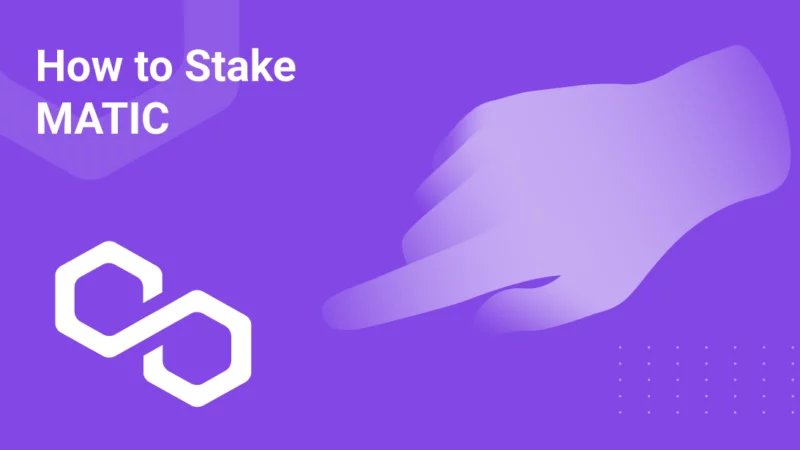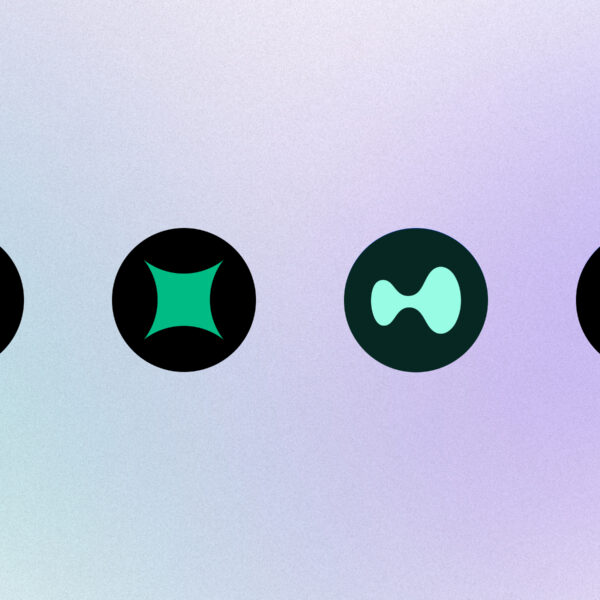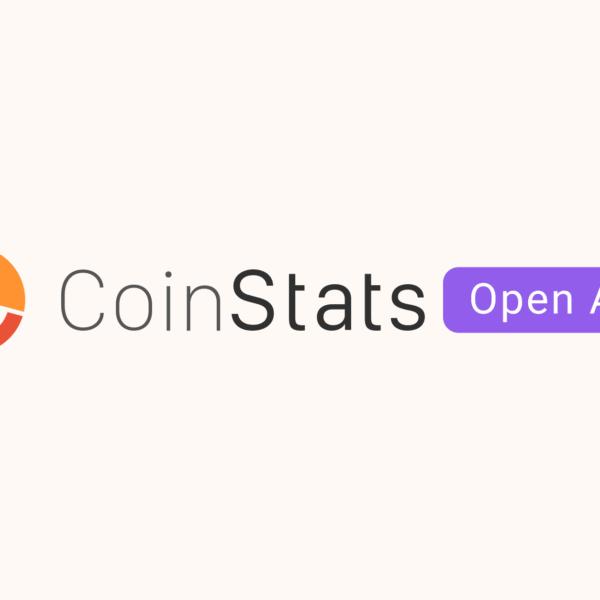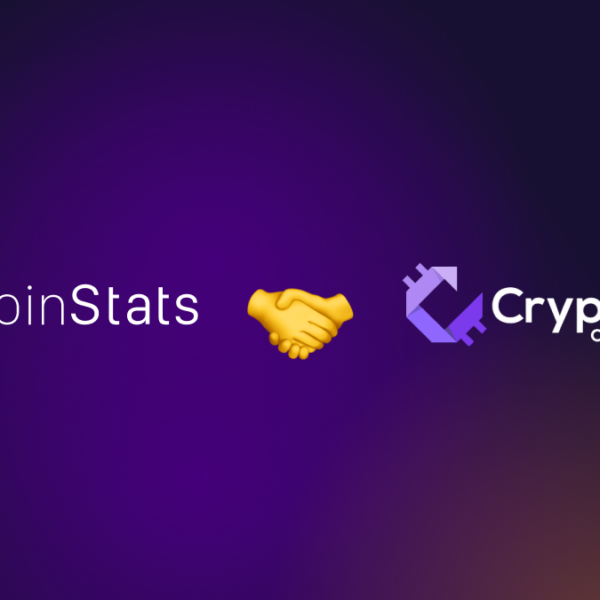
Staking involves locking up your crypto assets in your personal cryptocurrency wallet for a specific period to contribute to the performance and safety of the blockchain network and earn rewards in the form of additional coins or tokens.
One of the most popular options for staking is Polygon (MATIC), a scaling solution for the Ethereum network that has gained widespread adoption due to improving the speed and efficiency of Ethereum transactions and reducing ETH gas fees through Layer 2 sidechains. Polygon offers the Plasma Chains scaling model and the Ethereum Matic PoS Chain sidechain based on Proof-of-Stake (PoS) as a popular scaling option for various applications.
Matic is the native token for Polygon. By staking MATIC, investors can earn rewards while supporting the network’s infrastructure.
This article will explain everything you need to know about Polygon Matic staking and provide a detailed guide on where, why, and how to stake Matic tokens to earn staking rewards.
What Is Polygon Staking?
Polygon is a PoS network, enabling crypto investors to stake Polygon (MATIC) to contribute to network security and decentralization and earn an attractive yield for their staked tokens. Staking Polygon may provide you with a significant return on investment. According to Polygon, the typical APY for staking Polygon is 8%, and more than 2.39 billion MATIC tokens are currently staked in various staking providers.
When investors lock up their funds in a staking pool, they delegate their tokens to a validator to run nodes on the network. The validator stakes on your behalf and gives you your share of the rewards at the end of the staking period. Polygon relies on a set of validators, who stake their MATIC tokens as collateral to secure the network and earn rewards in exchange for their service. Polygon validators run a full node, produce new blocks, participate in consensus, verify transactions, and earn rewards for performing network operations. To become a validator on the Polygon chain, you must stake MATIC tokens with staking management contracts on the Ethereum mainnet.
A validator node receives inflation-funded block rewards and network-based transaction fees in return for good validator performance. Rewards are distributed to all stakers proportional to their stake at every checkpoint. However, slashing staked funds are placed at risk and can be penalized or slashed if a validator node commits a malicious act like double signing or validator downtime.
Token holders, called delegators, who cannot or don’t want to run a validator node, can participate indirectly by delegating their tokens to a validator. They secure the network by choosing validators and delegating their stake to validator nodes. Validators charge a fee for running a service for delegators. While delegators share rewards with their validators, they also share the risks.
Got MATIC?
Make it work for you
Benefits of Staking MATIC
Staking MATIC offers several advantages that make it an appealing choice for investors. It enables investors to earn staking rewards, which are determined by the amount of MATIC staked and the duration of the stake. These rewards are paid out in MATIC, allowing investors to accumulate more of the token over time conveniently.
Moreover, staking MATIC can potentially boost the value of your MATIC holdings. As more investors stake their MATIC tokens, the number of tokens available for trading on exchanges decreases, increasing scarcity and potentially driving up its price.
In addition to earning rewards, staking MATIC contributes to the network’s security. Staking helps decentralize the network by ensuring that validators are incentivized to act in the network’s best interests. This helps prevent malicious actors from compromising the network’s security, making it a more secure and reliable network for all users.
As of March 2023, the staking rewards on Polygon range from 5 to 10% annually, depending on the duration of the stake. These rewards are competitive compared to other staking options in the market, making staking MATIC on Polygon a compelling investment opportunity.
How to Stake MATIC on Polygon?
Staking MATIC on Polygon is a straightforward process that can be completed in simple steps. Here’s a detailed guide on how to stake MATIC on Polygon:
- Set up a MATIC wallet: To stake MATIC token on Polygon, you must create a wallet that suits your needs and supports the token, such as the Polygon web wallet, Metamask, MyEtherWallet, etc.
- Connect to a staking platform: Once you’ve set up a MATIC wallet, you must connect it to a staking platform, like Polygon’s official staking portal, Aave, Staked, etc.
- Select your staking options: Now, you must select a staking option, including the amount of MATIC you want to stake and the duration of your stake. Read the terms and conditions carefully before staking to consider any potential risks or fees involved.
- Complete the staking process: Complete the staking process by confirming the transaction in your MATIC wallet. Once the transaction is confirmed, your MATIC will be staked, and you’ll start earning staking rewards.
Tip
A minimum stake amount might be required to participate in staking on Polygon. Consider any potential risks involved, such as losing your staked tokens due to network attacks or other unforeseen events, before staking Polygon (MATIC).
Where to Stake MATIC?
Several staking platforms support staking Polygon MATIC tokens. Here are some of the most popular options:
- Polygon’s official staking portal: The Polygon staking portal is the most popular and widely used platform for staking MATIC on Polygon. It offers competitive staking rewards, a user-friendly interface, and excellent security features. To access the staking portal, visit Polygon and connect your MATIC wallet to get started.
- Aave: Aave is a popular decentralized finance (DeFi) platform that supports MATIC staking. It enables Aave users to earn interest on their staked assets and participate in other DeFi activities. To access Aave’s MATIC staking platform, visit Aave and connect your MATIC wallet.
- Staked: Staked is a professional staking platform where you can stake Polygon (MATIC) and other cryptocurrencies. Staked offers institutional-grade security features and competitive staking rewards, making it a popular choice among advanced investors. To access Staked’s MATIC staking platform, visit Staked and follow the instructions to connect your MATIC wallet.
Each staking platform described above offers unique features and benefits, so consider your options before selecting a platform to stake your MATIC. Consider the terms and conditions and any potential risks or transaction fees involved. By selecting a reliable and efficient platform, you can start earning passive income on your staked MATIC tokens in no time.
Risks of Staking MATIC
While staking MATIC can be a great way to earn rewards and support the network, it’s crucial to consider the potential risks and downsides. Here are some of them:
- Market fluctuations: As with any cryptocurrency investment, the value of your MATIC holdings can fluctuate over time. Staking MATIC doesn’t guarantee a fixed return, and your staking rewards may vary based on market conditions.
- Technical issues: Staking platforms often face technical issues or glitches, which can result in lost rewards or funds. Do your research and select a secure and efficient staking platform.
- Liquidity: When you stake MATIC, your tokens will be locked up for a period, meaning you can’t access or trade your tokens during the lockup periods. This could be a drawback if you need to sell or exchange them.
Pro Tip
Liquid staking enables you to stake funds to earn rewards while still having access to those funds.
To mitigate these risks, it’s essential to:
- Research and choose a reputable staking platform with a security track record.
- Diversify your investments across different cryptocurrencies and staking platforms.
- Monitor the market conditions and adjust your staking strategy as needed.
- Consider working with a financial advisor or cryptocurrency expert to help you make informed investment decisions.
You can minimize risks and maximize your rewards by staying informed and taking a thoughtful approach to staking MATIC.
Is Polygon (MATIC) Staking Safe?
One of the critical concerns for investors considering staking MATIC is the security of the Polygon blockchain and staking platforms. Here’s what you need to know about the security measures in place:
- Polygon network security: The Polygon network is built on top of the Ethereum blockchain and benefits from the same security features, such as decentralized consensus and cryptographic encryption. Additionally, Polygon uses various security measures to protect against potential threats, including regular audits and bug bounties.
- Staking platform security: The staking platforms used to stake Polygon (MATIC) typically implement their own security measures, such as two-factor authentication and encryption, so select a platform with a proven security track record.
While the Polygon network and staking platforms are generally considered safe, you should consider some potential risks, including:
- Hacking attempts or security breaches on the network or staking platform.
- Smart contract vulnerabilities or bugs.
- Market fluctuations that could impact the value of your staked tokens.
To stay safe while staking MATIC, here are some tips to follow:
- Select a reputable staking platform with a strong security record.
- Use a hardware wallet or other secure storage solution to store your MATIC tokens.
- Enable two-factor authentication and other security features on your staking account.
- Monitor the market conditions and adjust your staking strategy as needed.
- Consider purchasing insurance or utilizing compensation options offered by your staking platform in case of unexpected events.
You can enjoy a secure MATIC staking experience by following these guidelines and staying vigilant.
Conclusion
Staking has gained immense popularity among cryptocurrency investors as a means to earn passive income while supporting the networks they believe in. Among the various staking options available, Polygon’s (MATIC) staking is a particularly attractive option due to its high staking rewards, contribution to network security, and potential to increase the value of your MATIC holdings.
Staking presents lucrative opportunities, but evaluating the potential risks and downsides before investing thoroughly is essential.
We strongly urge our readers to conduct their own research and carefully weigh the risks and rewards before staking any funds on Polygon or any other network. It’s imperative to prioritize safety and security while investing in cryptocurrencies and consider the potential risks.






